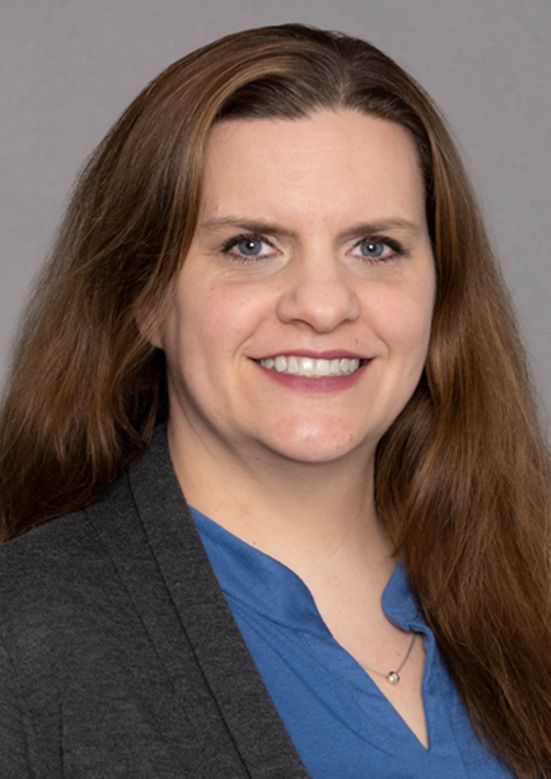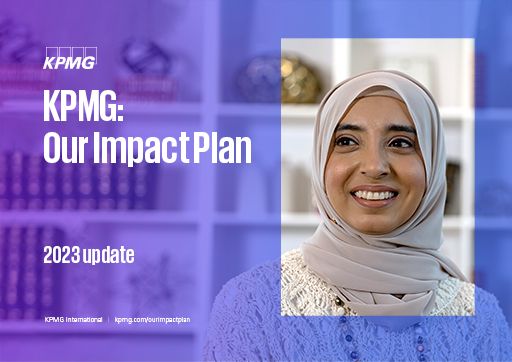We’ve made progress in unlocking our organization’s contribution toward economic and social prosperity, in line with the UN Sustainable Development Goals. To us, prosperity is about what businesses are doing to make a positive contribution to and impact on society and the communities in which they operate — being a good corporate citizen.
This means we strive to create meaningful employment opportunities; we generate wealth and contribute to the economy through growing our business and paying taxes; we provide services for clients to help them drive sustainability; and we invest in our communities through volunteering and donations.

We take our role in society seriously and are proud of the jobs we create and the careers we develop — whether it be the people who build a long-term career at KPMG or the people we develop and enable with professional qualifications in their early careers who then go on to varied roles in the private and public sectors across the world.
In FY22, we brought more than 96,000 new hires into our global organization and created nearly 30,000 net-new roles, investing in our workforce to support growth by adding specialists and subject matter experts at all levels. We face geopolitical uncertainty and a turbulent economic environment, and while continuing to invest in our people, we’ll remain vigilant to ensure our workforce aligns with current and anticipated demand in the market.
KPMG firms overall hired more than 25,000 graduates, representing more than 25 percent of the total new hires throughout the KPMG organization. These new hires will have the opportunity to benefit from our structured development, including funded professional qualifications and accreditations — gaining learning for a lifetime. They will have opportunities to make an impact with their work as well as outside of KPMG through volunteering and community initiatives.
New hires by gender
Financials (FY22, US$ in billions)
Global revenue by function
Global revenue by region
Download the full report to explore all our data.
During continued economic and geopolitical uncertainty, robust numbers and consistent growth were achieved across all functions at KPMG firms. For FY22, KPMG reported annual aggregated global revenues of US$34.64 billion — an increase of 14 percent from FY21.1 Advisory achieved the largest growth increase — up 19 percent on FY21 across KPMG firms globally. Tax & Legal2 experienced 10 percent growth while Audit grew eight percent, benefiting from a combination of the investments made in technology and our KPMG firms’ globally connected local knowledge.
Strong revenues promote prosperity: FY22 revenue includes more than 15 percent in locations that the UN categorizes as developing regions, and the growth we saw in these areas exceeded the levels of growth we saw in KPMG firms across the global KPMG network. This growth has led to the addition of specialists and subject matter experts at all levels, and as we grow, our ability to strengthen our community support does, too.
Our approach to tax
Our charitable and non-profit support is directed towards organizations and initiatives that meet a compelling community need. We’re focused on areas where we have a significant presence — such as education and lifelong learning — and on programs and initiatives where we can make a meaningful impact.
In FY22, we made significant investments in social impact through our sponsorships, fundraising, contributions to the community and donations, focusing on social impact priorities. Through these investments, we utilize the range of skills within our organization to have a strong impact on those in need, while also using our public voice to support those who are marginalized.
618,000
volunteer and pro bono hours by KPMG people
➔up 28% from FY21
US$0 million
of financial support to local communities
➔up 18% from FY21
People of KPMG

KPMG is focused on making significant contributions toward achieving UN Sustainable Development Goal 4 to help ensure inclusive and equitable education for all.
10by30 strategy
In FY22, we made progress on our commitments to economically empower 10 million disadvantaged young people by 2030 through education, employment and entrepreneurship opportunities. KPMG is delivering on this vision through a framework that will equip students with the skills to succeed in the labor market; support job transition by providing students with knowledge, mentorship and opportunities to access work; and help transform the education ecosystem by upskilling educators and helping to create more effective education institutions.
As part of KPMG’s ongoing commitment to help young people develop the skills to help them become future-ready, we’re working with KPMG firms around the world to support them on their journey toward the world of work.
We’re continuing to strengthen our global collaboration with UNESCO and rallying behind an initiative we call "IT’s Her Future" to empower girls and women with technology skills. To scale our reach, we will leverage technology, make donations and expand volunteering and pro bono work.
Case study
Providing disaster relief
In the wake of disasters around the world, whether from wars or natural disasters, vulnerable populations are disproportionately at risk. As a global organization, these issues impact us all. When a crisis hits, we have a responsibility to help where we can:
Ukraine support
- In response to the Russian government’s invasion of Ukraine, we’ve helped our Ukrainian colleagues and those affected in the region, including their immediate family members, to relocate to safer areas of Ukraine or leave the country if they wished, and supported them financially throughout. With the help of our KPMG firms and colleagues, KPMG International and member firms contributed more than US$4.5 million to UNICEF’s Ukraine Emergency Appeal, helping to provide water and sanitation services, child protection, psychosocial support, health services and emergency cash assistance.
Pakistan support
- KPMG mobilized to provide critical aid and humanitarian support to affected families as a result of catastrophic flooding and made donations from KPMG International and member firms and their people of more than US$400,000. Significant efforts by KPMG in Pakistan, supported by member firms and KPMG International, continue to be provided to the country as it enters its rebuild phase.
Get in touch
Connect with us
- Find office locations kpmg.findOfficeLocations
- kpmg.emailUs
- Social media @ KPMG kpmg.socialMedia
Our Impact Plan represents the collective environmental, social and governance commitments of independent KPMG firms, affiliated with KPMG International Limited. The data represented in Our Impact Plan is aggregated data from KPMG firms for the 12 months to 30 September 2021 unless stated otherwise. KPMG International Limited is a private English company limited by guarantee and does not provide services to clients. Where the terms “KPMG,” “firm,” “we” or similar references are used without definition, they are intended to refer to KPMG International Limited and the independent KPMG firms. The financial information set forth represents combined information of the independent KPMG member firms that perform professional services for clients, affiliated with KPMG International Limited. The information is combined here solely for presentation purposes. KPMG International Limited performs no services for clients nor, concomitantly, generates any client revenue.
Throughout this webpage, “we”, “KPMG”, “us” and “our” refers to the global organization or to one or more of the member firms of KPMG International Limited (“KPMG International”), each of which is a separate legal entity.
1 14 percent is based on the growth in continuing operations and excludes the FY21 and FY22 revenues from businesses sold or countries from which KPMG exited during this period. When not restated, the revenue growth is 13 percent.
2 Certain member firms of the KPMG global organization, including the US firm, do not provide legal services or have KPMG Law service entities.




